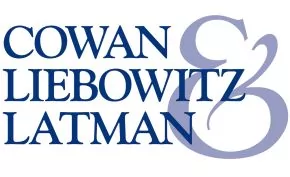- within Intellectual Property topic(s)
- in South America
- with readers working within the Aerospace & Defence industries
- within Government and Public Sector topic(s)
In order to succeed in challenging the registration of a service mark on the ground that it is likely to cause confusion with your identical or similar mark, you must show that the respective services overlap, are complementary, or at least are within the zone of natural expansion of your services.
An example of an unsuccessful challenge involved an application to register MOSAIC for "charitable services, namely providing vocational training in the field of job responsibilities and finding employment for disabled individuals." Opposer owned an existing registration of MOSAEC for various entertainment services. However, it also claimed prior common law rights in connection with "providing vocational training."

Applicant proved that it had used MOSAIC for charitable vocational services for disabled individuals since 2003. Opposer claimed a likelihood of confusion with its mark MOSAEC, which it had registered for various entertainment services in 2018 claiming use since 1998. Opposer also claimed to have used its mark for vocational training services since 1999.
The Marks
Since the respective marks differed by only one letter, the Trademark Trial and Appeal Board (TTAB) found that consumers were likely to view them as variant spellings of "mosaic," similar in appearance, pronunciation, and meaning. Further, both parties used their marks in the same suggestive sense of bringing disparate elements together to form a unified whole.
The Common Law Services
The TTAB noted that Applicant's clear and specific testimony and evidence showed that it had actually advertised and rendered its charitable vocational services to disabled people since at least as early as 2003. It also found that those engaging Applicant's services would exercise great care and deliberation in seeking the best environment for the disabled person.
On the other hand, Opposer did not identify even one specific example of its "vocational training." Rather, the TTAB found that Opposer offered vague, indefinite and conclusory testimony supported by a few scattered, disparate documents -- an undated and unsigned "mentoring agreement," mailings stating that it would offer such services in the future, and a brochure offering a career program without evidence that it ever was taught to anyone, let alone to the disabled.
Accordingly, the TTAB held that Opposer had not proven its common law use of the MOSAEC mark for vocational services, so it confined its analysis to the entertainment services specified in Opposer's registration.
The Registration's Services
The TTAB agreed with Applicant that Opposer's entertainment services were neither charitable, vocational, nor targeted toward disabled individuals. Although Opposer provided statistics as to the viewers of its mark on social media platforms, the TTAB discounted these raw numbers as lacking any context from which to reasonably infer public recognition of Opposer's mark.
However, Opposer pleaded that Applicant's services were within Opposer's zone of natural expansion. The TTAB rejected this, pointing out that vocational training was a distinct departure from Opposer's entertainment business. The purposes of the parties' services were manifestly different, the channels of trade and classes of customers diverged significantly, and Opposer had not demonstrated that any other companies had expanded from entertainment into charitable vocational training for the disabled.
The TTAB also pointed out that Opposer could not extend the use or registration of its mark to a distinctly separate field of endeavor not comprehended by its previous use or registration where the result could be a conflict with the valuable intervening rights Applicant had established. We previously wrote about this point in Trademark's Zone of Natural Expansion is Defensive Not Offensive.
The TTAB rejected Opposer's attempt "to stretch its services far beyond their actual bounds." Given that the parties' marks had been in simultaneous use for over twenty years with no evidence of actual confusion, the TTAB concluded that the dissimilarity of the services outweighed the similarity of the marks, and it dismissed the opposition.
RLP Ventures, LLC v. Mosaic, Opposition No. 91273876 (T.T.A.B. September 10, 2025).
Author's Note:
Even though the respective services were disparate, Opposer might have prevailed on a dilution claim -- that Applicant's mark was blurring the distinctiveness of Opposer's mark. To succeed, Opposer would have had to show that its mark was generally famous for entertainment services at the time Applicant commenced the use of its mark for charitable vocational services to the disabled. Of course, in this case, Opposer did not plead a dilution claim or seek to prove that its mark had become famous.
The content of this article is intended to provide a general guide to the subject matter. Specialist advice should be sought about your specific circumstances.


